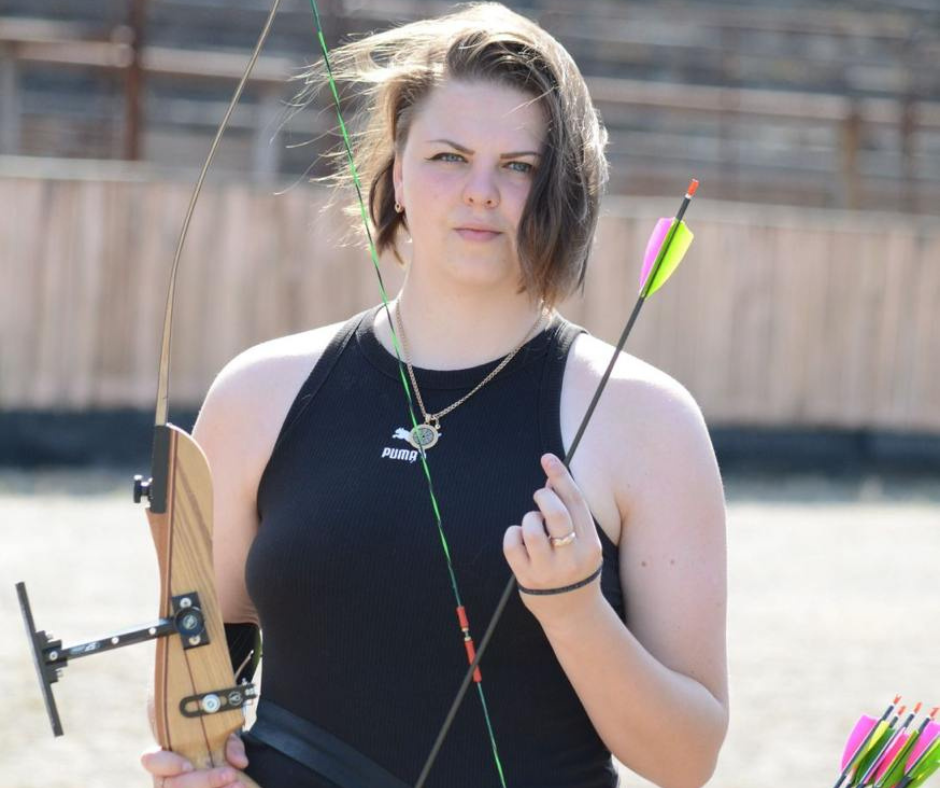INNA KOROLENKO, a combat medic from Odessa, worked in civilian life in a public organization, in communications and journalism, as a producer in television, had her own SMM studio, worked with children, and was a music therapist. During her service, she organized the evacuation of the wounded and fallen from the battlefield. She sustained a gunshot shrapnel wound to the neck and a concussion. She sees the Invictus Games as a chance for veterans to reconnect with their comrades, heal, and gain emotional strength that will last for years.
About childhood: Up until 11th grade, I was like a “houseplant” nurtured by my parents. They watered and fed me on a strict schedule, and I was involved in music, solfeggio, dance, choreography, sculpture, macrame, and English. From the age of four, I had about seven extracurricular activities. I enjoyed it.
A few times a month, my mom allowed me to skip school on Wednesdays. Thanks to those days off, I had the energy for everything else.
When I moved to Lviv for my studies, my activities didn’t decrease — they only expanded with involvement in public organizations, social funds, and orphanages. In my third year, I started working at the regional state administration.
About my profession: I am a specialist in international relations, a diplomat, a translator, and a European integration expert. However, at 20, I unexpectedly entered journalism. I was quickly made a producer, recording and airing shows, but at the time, I didn’t even know what “chronometer” meant. When the director would ask, “What’s our chron?” I couldn’t understand what he meant for a long time. I had to learn quickly. It was a very difficult but very exciting time. However, I won’t continue as a journalist.
As a child, I dreamed of becoming a medic, a paramedic, working on an ambulance, and going on emergency calls. But I didn’t understand chemistry. I loved biology and physics, but chemistry was a struggle for me. So, I gave up on that dream. Besides, becoming a doctor would take about seven years of studying, plus an internship, and there was no guarantee I would work in a hospital. I wasn’t ready to spend that much time, because for me, time is the most valuable thing. My parents saw me as a translator, but I didn’t see myself in dictionaries and books. I craved excitement.
At 22, I opened my own SMM agency. We had a great team. We started during the elections, managing pages for several businesses during the lockdown. We did pretty well. But everything came to an end when I broke my leg. It was winter, a period of stagnation, and there were few orders I decided that by closing the business and focusing on my own recovery, I could eventually reopen and grow new businesses.
About music therapy. After closing my business, I became interested in NLP (neuro-linguistic programming) psychology. I completed training to become a practitioner and trainer and became an NLP therapist. But I didn’t want to be a conventional NLP therapist, and I turned my attention to music therapy because music and singing had always been a big part of my life.
I collected instruments: percussion, drums, Scottish bagpipes, accordion, flute, harmonica, xylophone… With these instruments, our sessions with the children often felt more like play than therapy. But if a child had an understanding of an instrument, we would approach therapy from the child’s relationship with their parents. For example, the child would play “how the mother is angry,” “how the mother is kind,” how they would want their mother to behave when they feel guilty, how the child experiences guilt, how guilt sounds… And then we would layer the sounds and feelings, and in that way, the child processed their trauma through music.
I managed to conduct four children’s workshops and one adult session, and then the war began. I went to the front lines.
About value. I always thought that I lived a slow-paced life. I always felt the need to be everywhere on time. During the war, this sensation became even more pronounced. I used to have a strict schedule, but now I have to live in the present moment, and it’s difficult.
Control has always been a major part of my life—over my body, my emotions, and my choices. But right now, I’m in a place where nothing is under my control. This is very challenging for me. And I’m learning to understand that, indeed, life sometimes works that way—some things are beyond my control, so I have to let them be.
About rest. I used to really enjoy being at home, in my cozy apartment. I would try out new recipes — I love cooking — set up the sofa, put on a movie, and relax with my cat Kiryusha by my side. Before the war, my cat was enough for me, because I could handle things on my own. But now, I’m not afraid to admit that I can’t handle everything by myself, and I need someone. The hardest part is pretending to be fine and then feeling like you’re digging yourself into a hole at night.
I also loved hiking in the mountains. I’ve hiked almost all of the Scoliv Beskids.
About self-love. As a child, I loved the whole world. But now, I love myself This love manifests in the fact that I allow myself to feel what I feel and do what I want to do. Before the war, I was an energizer who could get everything done, but now, I feel more like a child who just wants to be held. I need time to get back to normal.
About the war. When I first arrived in Lviv, I volunteered at a military hospital. I had many friends among the military. In the first few weeks of the full-scale war, several of my friends, who were incredible warriors, were killed. They had gone through Debaltseve, the encirclements, the loops, and airports… Dima Sydoruk (Invictus Games participant and coach), Taras Bobanych, and others. I cried for several days, and when Serhiy Shymchak (2018 Invictus Games participant) called me and said he was also returning to the military, I decided it was time for me to become a medic (I had already completed many medical courses by that point).
I served for two months in a rifle brigade in Lviv, then I was transferred by order to Rivne as an office worker. After eight months, I was approved for a transfer to the 206th battalion, and just before the New Year, I arrived in Vovchansk. At that time, it felt like I had escaped hell and landed in a wonderful team. It really was amazing. When we were leaving Bakhmut, our commander hugged each of us.
The situation worsened when our commander, Vitaliy Baranov, “Biba,” had a heart attack. He was like a father to us — positive, strict, and kind. We passed through Vovchansk, Bakhmut, Soledar, Mariinka… In Pobeda, near Mariinka, my first platoon leader was killed. I ended up in the hospital for two months. My unit was then relocated to New York, where we lost many people.
What weighs most heavily on me is knowing that somewhere, in that damn Donetsk grove, lie the bodies of guys who could have lived, had children, and everything could have been fine if it weren’t for those f****** Russians.
About psychological struggles and the Invictus Games. My friend Serhiy Shymchak kept pushing me to apply for the Invictus Games national selection. I wanted to do it in 2023, but when we left Bakhmut, I was scheduled for a training trip to Hungary, which overlapped with the national selection. I ended up applying the following year while I was in Soledar.
During a rotation in Mariinka, something happened that deeply impacted me psychologically. I wasn’t able to retrieve a soldier who had been injured in the head. We were stationed in an area full of drones and mines. We could only pass through this minefield using a Bradley vehicle from a supporting unit. But I waited for 40 minutes while the chief medic coordinated the evacuation of the “M-ki” vehicle. Just 200 meters from the position, the vehicle dropped a track. Somehow, the driver managed to stretch the damaged track, we turned around, and had to go back without the wounded.
I felt an immense sense of guilt. I tore myself apart. I ended up in a situation where helping the injured wasn’t possible, and evacuation couldn’t be organized due to several reasons. They removed me from this unit, and I spent two weeks in a room with radios, hearing the farewell cries of the wounded. I nearly went crazy, so they reassigned me to work on vehicle repairs.
While I was in the psychiatric unit, the Invictus Games national selection took place. Thanks to Shymchak, I managed to participate, but I would run away after each competition because I was terrified of any noise and being around people.
I thought the Invictus Games would help me reintegrate into society.
About support: My fallen platoon leader, Vasyl Palamarchuk, was the only one in the team who told me, “I’m proud of you” after I participated in the national selection. But I never got the chance to tell him that I made it into the team. It was easier to serve with him. After his death, everything changed.
When things get really tough, I now allow myself to cry. Before, up until I was 21, I wouldn’t allow myself to do that. The only time I remember crying was after the surgery on my leg, when I couldn’t walk for a month. That was extremely difficult for me. After the war, I became like an exposed nerve, especially after Mariinka. Even a simple touch seemed like it could make me break down. Now I know it’s better to cry, because if I keep everything inside, I could end up in a psychiatric ward with a specific diagnosis.
I’ve developed a circle of people who were there for me during the toughest times and continue to stand by me. Before, I needed people to fully understand me. Now, after my experience in the war, I don’t demand that from others. I will be grateful if they listen to me, support me with conversation, hugs, a tasty meal, or asking, “What would you like right now?” But I understand that I shouldn’t expect complete understanding, because that person hasn’t gone through the same things I have.
About personal wishes. I really want freedom. In the army, I don’t have the right to choose; there is always control. It’s hard for me. In reality, I feel a great potential within myself, but for that, I need rest and rehabilitation. I dream of opening a massage salon. I truly enjoy working not just on my own body, but also on others’.
Translated by Green Forest English School

